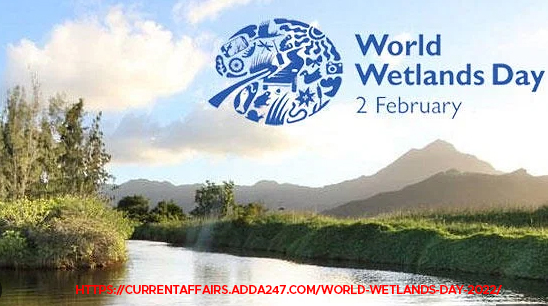By:
Prof. Edward Wiafe Debrah (Ag. Pro Vice-Chancellor)
University of Environment and Sustainable Development, Somanya
World Wetlands Day is observed on the 2nd of February every year to recognize the important role wetlands play in our ecology. Numerous plant and animal species depend on wetlands as a source of food, water, and habitat. They are essential for decreasing the effects of floods and droughts and for storing carbon, which helps to mitigate the effects of climate change.
The theme for this year’s celebration is: It is Time for Wetlands Restoration.
On World Wetlands Day, it is crucial that we consider how important it is to safeguard and conserve these priceless environments for future generations. In order to protect wetlands; governments, organizations, and people must band together to spread awareness of their value. This can involve assisting with conservation initiatives, lowering pollution levels, and promoting sustainable land use techniques.
Furthermore, World Wetlands Day offers a chance to emphasize the value of wetlands for people and the services they offer, such as water filtration, fishing, and enjoyment. For the benefit of both people and the environment, we must keep funding and supporting projects that encourage the sustainable use of wetlands.
World Wetlands Day serves as a reminder of the importance of wetlands in our world and the necessity for ongoing protection and preservation efforts for future generations. Let us all do our share to safeguard these priceless places and guarantee their ongoing survival, for Wetlands are crucial components of ecosystems and have several positive effects on our environment and societies. Despite their significance, wetlands are being drained, filled up, and destroyed at an alarming rate, which has resulted in the loss of habitats for animals, erosion control, water filtration, and flood protection, among other things. Wetlands are further, threatened by a variety of human activities, such as urbanization, agriculture, and pollution. As a result, experts believe that up to 64% of the world’s wetlands have vanished over the previous century. Human activities including farming, urbanization, and resource extraction are among the main causes of the degradation of wetlands.
The theme for this year’s celebration: ‘It is Time for Wetlands Restoration,‘ emphasizes the need for wetlands to be restored in order to address today’s pressing environmental problems and to restore their natural benefits. Restoration efforts aim to recreate these ecosystems by reestablishing the hydrology, vegetation, and wildlife populations must be embraced and supported. The outcomes are worthwhile despite the challenges.
When it rains heavily, wetlands operate as natural sponges, soaking up and holding onto water to lessen the likelihood of floods. They also make water clean, making it safe for ingestion by both humans and animals, by eliminating contaminants and silt.
Providing food, shelter, and breeding grounds, wetland environments are essential for a wide variety of plant and animal species. Wetlands need to be restored in order to support biodiversity and safeguard endangered species.
In addition, wetlands are vital in reducing the consequences of climate change. By storing carbon, they lessen the amount of greenhouse gases in the air and help to slow down global warming. Restoration initiatives contribute to the development of new carbon sinks, which help to clean up and green our planet.
Wetlands restoration is not only beneficial for the environment, but it also offers numerous opportunities for communities. Wetlands provide recreational opportunities for people, such as fishing, bird watching, and hiking. They also support local economies by attracting tourists, and generating income through hunting, fishing, and other activities.
Wetlands in Ghana play an important role in the country’s ecology and economy. They provide vital habitats for a wide range of flora and fauna and are also important sources of water for agriculture, industry, and domestic use. Wetlands in Ghana include mangrove forests, swamp forests, and freshwater marshes. They also help to regulate the water cycle, prevent soil erosion; and reduce the impact of floods. Despite their importance, many wetlands in Ghana are under threat due to activities such as deforestation, urbanization, and pollution. In order to conserve and protect these valuable ecosystems, the government of Ghana has established several protected areas and has implemented policies to regulate activities that may cause harm to wetlands. These include Keta Lagoon and Tidal Wetlands, Songor, Muni-Pomadze, Densu Delta, Sakumor and Owabi wetlands of international importance. However the rate at which the masses are disobeying the laws that govern wetlands in Ghana leaves much to be desired. Activities like sand winning, estate development, commercial farming, hunting and overgrazing are degrading the wetlands’ values and integrity.
Therefore, it is imperative that wetlands be restored in order to both revive their natural benefits and address the pressing environmental problems of the present. By restoring wetlands, we can, among other things, protect biodiversity, lower the risk of floods, clean water, and lessen the effects of climate change. It is a financial investment in our future, and now is the moment to act.
Let us work together to protect and restore wetlands and ensure a sustainable future for generations to come.

